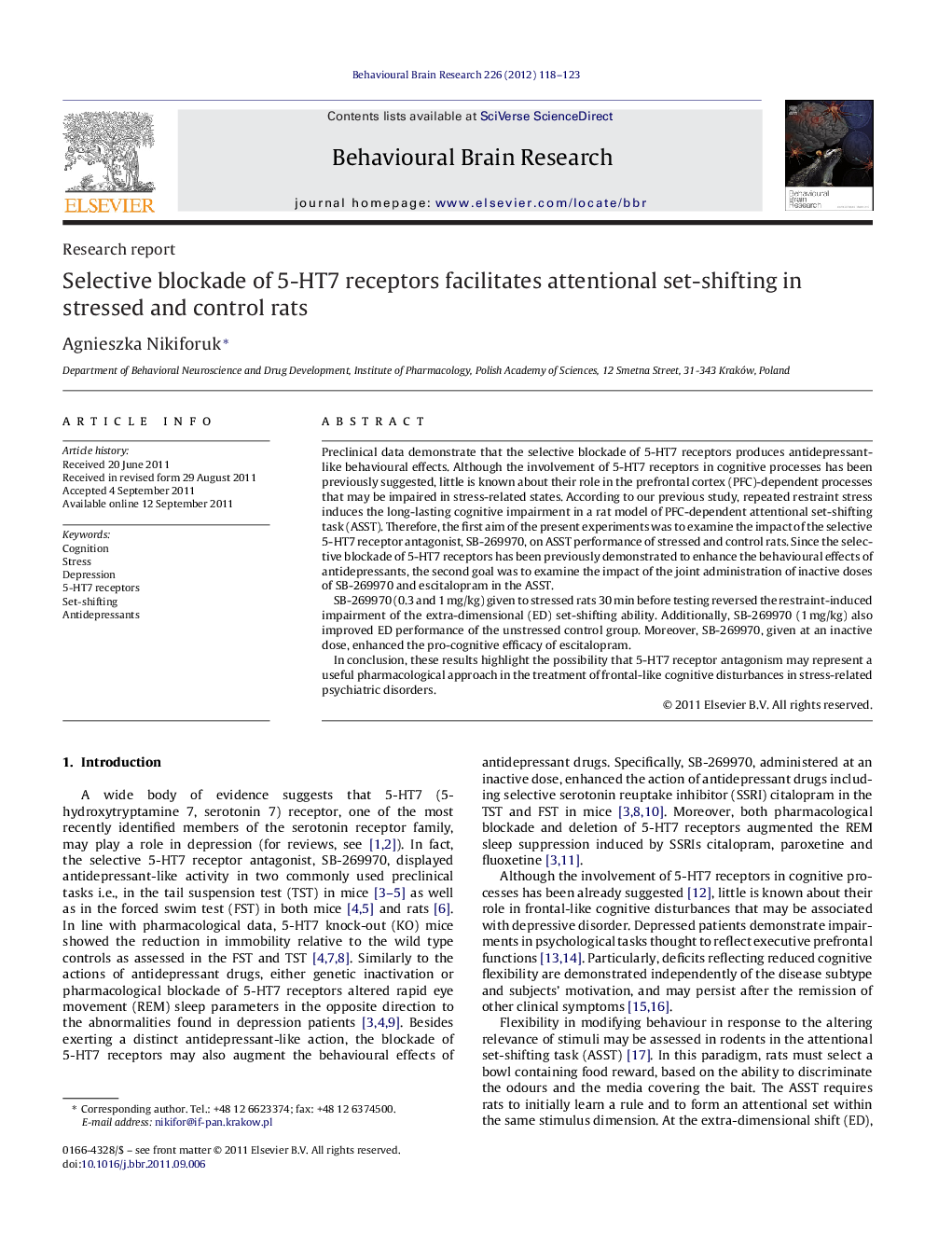| Article ID | Journal | Published Year | Pages | File Type |
|---|---|---|---|---|
| 4313500 | Behavioural Brain Research | 2012 | 6 Pages |
Preclinical data demonstrate that the selective blockade of 5-HT7 receptors produces antidepressant-like behavioural effects. Although the involvement of 5-HT7 receptors in cognitive processes has been previously suggested, little is known about their role in the prefrontal cortex (PFC)-dependent processes that may be impaired in stress-related states. According to our previous study, repeated restraint stress induces the long-lasting cognitive impairment in a rat model of PFC-dependent attentional set-shifting task (ASST). Therefore, the first aim of the present experiments was to examine the impact of the selective 5-HT7 receptor antagonist, SB-269970, on ASST performance of stressed and control rats. Since the selective blockade of 5-HT7 receptors has been previously demonstrated to enhance the behavioural effects of antidepressants, the second goal was to examine the impact of the joint administration of inactive doses of SB-269970 and escitalopram in the ASST.SB-269970 (0.3 and 1 mg/kg) given to stressed rats 30 min before testing reversed the restraint-induced impairment of the extra-dimensional (ED) set-shifting ability. Additionally, SB-269970 (1 mg/kg) also improved ED performance of the unstressed control group. Moreover, SB-269970, given at an inactive dose, enhanced the pro-cognitive efficacy of escitalopram.In conclusion, these results highlight the possibility that 5-HT7 receptor antagonism may represent a useful pharmacological approach in the treatment of frontal-like cognitive disturbances in stress-related psychiatric disorders.
► Repeated restraint stress impaired rats’ set-shifting ability. ► The 5-HT7 receptor antagonist, SB-269970, reversed this deficit. ► SB-269970 promoted cognitive flexibility in unstressed control rats. ► SB-269970 also enhanced the procognitive efficacy of escitalopram.
